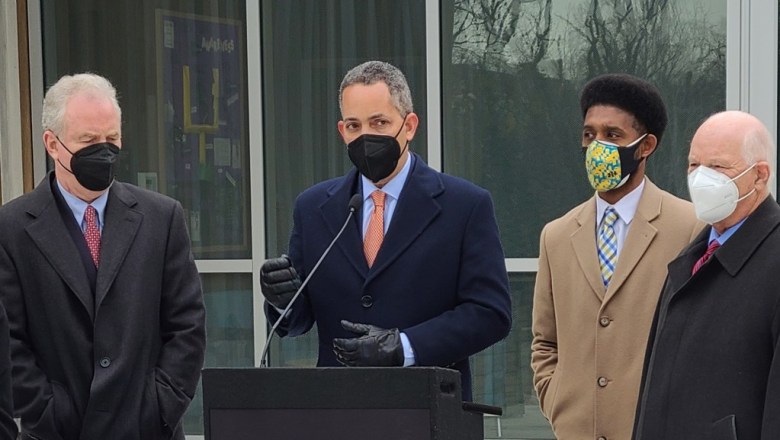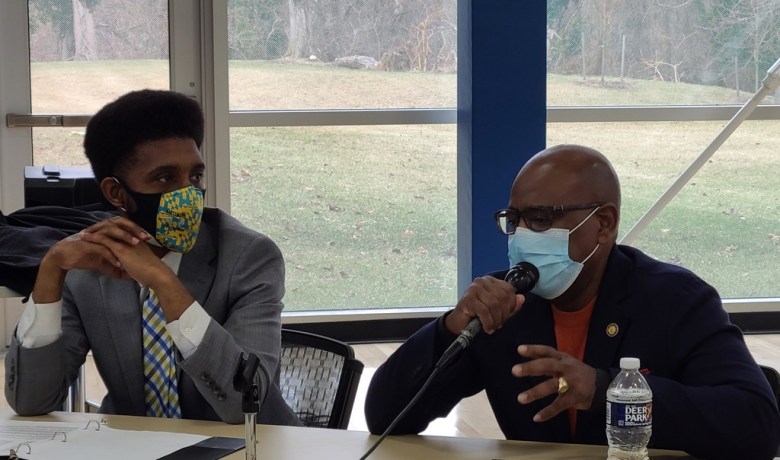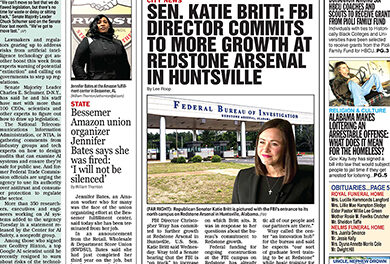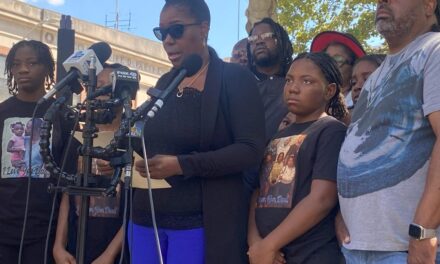
By Deborah Bailey
Special to the AFRO
At least $100 million in federal funding for access to quality broadband services is on its way to Maryland, from the $3.1 trillion Bipartisan Infrastructure Investment and Jobs Act passed in December according to Don Graves, deputy secretary of commerce.
Graves joined Baltimore Mayor Brandon Scott, Maryland’s HBCU presidents and Senators Ben Cardin and Chris Van Hollen to announce funding slated for under-represented communities of color across Maryland to access and upgrade to broadband services.
“We must build capacity to ensure access to broadband is no longer a private luxury, but instead functions as a public good in a modern civil society like water,” Scott said.
HBCU presidents and administrators are awaiting word on grants from the Commerce Department’s $268 million Connecting Minority Communities pilot program that each campus applied to in December. The grants will be used to purchase broadband service and equipment, hire technical personnel, and facilitate in-person and remote instruction.
Graves mentioned more than $300 million in grant requests from across the US came in response to the RFP. “We’re trying to get responses out to communities as soon as we possibly can” Graves announced.
Upon hearing grant applications had already exceeded the program’s budget, Van Hollen promised to seek appropriations ensuring every community has what they need.
“We’ve got to make sure we can meet the needs of all the good proposals out there,” Van Hollen said.
“The connections between our students, the community and opportunity comes to a focal point with our HBCU’s” said Senator Ben Cardin, an early proponent of ensuring the small business community was included in broadband capacity building.
“African American households in this state account for 40% of all the disconnected households,” Graves added.

“More than 30 million people in this country live in places where reliable broadband isn’t there,” Graves continued.
“The biggest challenge for us will be sustainability,” Maurice Taylor, Vice President for Information Technology at Bowie State University, said about the prospective technology funding.
“It’s wonderful that we have these new kick start programs to help with the digital divide, but it’s going to be an ongoing struggle to make sure communities can sustain after initial funding comes” Taylor said.
Anthony Jenkins, Coppin State University president, has experienced a “double pandemic” in West Baltimore occurring as a result of the virus exacerbated by the large gap in internet access across the community.
“West Baltimore is a place where the digital divide is so significant,” Jenkins stated. “Nearly one-third of households in West Baltimore are without even a computer. Nearly 60% of West Baltimore residents are without broadband,” Jenkins continued.
Jenkins intends to use federal funding to make Coppin a broadband hub for the community as well as students.
“We want the community to use our institution as a resource,” Jenkins said.
David Wilson, president of Morgan State University looks forward to the massive broadband investment to boost economic empowerment.
“I want to ensure that our communities are not just given access but brought into this new economy,” Wilson said.
Wilson stated that he participated in a virtual class along with his students to understand what students were really facing.
“I already thought I understood the digital divide,” Wilson continued. “I did not. Many of our students didn’t even have devices to start with,” Wilson continued. “And then there was the lack of access to high speed broadband,” he continued.

“Our infrastructure is really dated,” responded Jim Mathias, government relations director at UMES. “Our campus should be the hub” Matthias said as he referenced UMES students and community members on the Eastern Shore who congregate at McDonald’s and other fast food restaurants to access the internet.
“The president believes in HBCU’s said Graves. HBCU’s are at the core of our ability to resolve the challenges that are facing so many of our under-served communities,” he said.
“We know that you deliver and change lives, not only for individuals who attend your schools but for the communities around them and the communities where students are coming from.”
Broadband access funding gives the Commerce Department’s National Telecommunications and Information Agency, responsibility for several broadband programs including:
*$42.45 billion in grants to states prioritizing high-speed broadband deployment to households and businesses that currently lack access. Maryland will receive a minimum of $100 million.
*$2.75 billion for digital equity for communities in need of “skills, technologies and support to take advantage of broadband connections.”
*one billion for “middle-mile” connections to build a “high speed backbone “for communities, businesses and anchor institutions
Help us Continue to tell OUR Story and join the AFRO family as a member – subscribers are now members! Join here!
The post Broadband Roundtable appeared first on AFRO American Newspapers .











